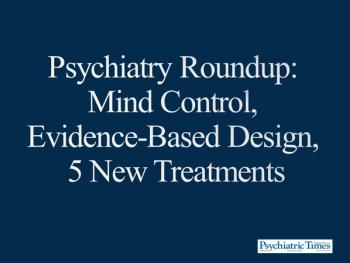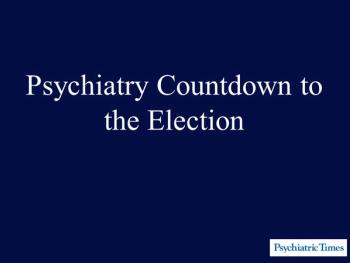
2020 was a difficult year, and to move forward, mourning losses is necessary.

2020 was a difficult year, and to move forward, mourning losses is necessary.

Toxic family members who belittle mental illnesses can fracture a family.

How can you help patients keep their resolutions?

Looking for holiday gifts that encourage mental well being?

Eradicating structural racism takes actions both big and small. Read more to learn about one doctor’s experience and what you can do in your own practice.

One doctor shares her experience of treating black patients, and calls on you to help make reparations for the harm psychiatry has caused.

Dr Cheng shares his experience with racism in the hopes that we can join together to create a better country for everyone.

Institutionalized racism is built into the very foundations of medical specialty organizations. The American Academy of Pediatrics recently issued an apology for said racism. Here is why other institutions should follow suit...

Based on recent data, it is looking more and more like the answer may be that social media is not particularly beneficial for most of us.

Like it or not, social media has become a constant in our lives, and it is getting harder to unplug. But, is social media actually causing harm?

This just in from the Center for Infectious Joy.

On a daily basis, our patients demonstrate their resilience to face reality and rise above their challenges, despite the odds. So shall we.

The public has questioned the wisdom of a judge to release a psychiatric inpatient, but not just any patient. Enter our metaphoric haunted house at your own risk.

What do behavioral activation, video therapy, family constellation, ibogaine, and psychomagic have in common? These topics and more were chosen for this month's roundup.

“Election addiction disorder, undifferentiated, DSM-5A-177.6x” is characterized by an overwhelming need to watch anything and everything related to the current race for the White House, no matter how microscopic. Clinical details and prognosis are examined here.

The supposed “epidemic” of mental illness turns out to be mostly a myth in the US adult population, 2000-2015.

What do you have to say about the Presidential election? Here are the latest offerings from your colleagues about this historic election.

It is not unusual for patients to seek consultation with questions about their sexuality. This article provides useful definitions and clinical examples for therapists who wish to address these patient concerns.

I hope readers look seriously at what the Presidential candidates have to say-or if they say anything at all-about addressing the current and increasing disaster in the mental health system before casting their votes.

Suggestions for what psychiatry can do to alleviate, contain, and eventually prevent or avoid the demolition of culture and health.

Former President of the American Psychiatric Association, Nada Stotland, MD, MS, speaks here about abortion-a subject that is especially important for psychiatrists in several ways.

This article aims to provide the general psychiatric community with an update on the major findings on the biology of ASDs as well as the advances in diagnostic and interventional strategies.

Most military families successfully adapt to a service member's deployments for military duties. Nevertheless, almost a decade of wartime stress associated with the current wars in Iraq and Afghanistan has presented unprecedented challenges for military families.

While I sit in the third row of my synagogue on Saturday morning, reciting the traditional portions of the Sabbath service, I have running through my mind an additional and more intensely felt prayer-that none of my fellow congregants will approach me later to discuss their personal psychiatric care.

Recent findings indicate that social interaction is a key to living longer. Theoretical models have suggested that social relationships influence health through stress reduction and by more direct protective effects that promote healthy behavior.